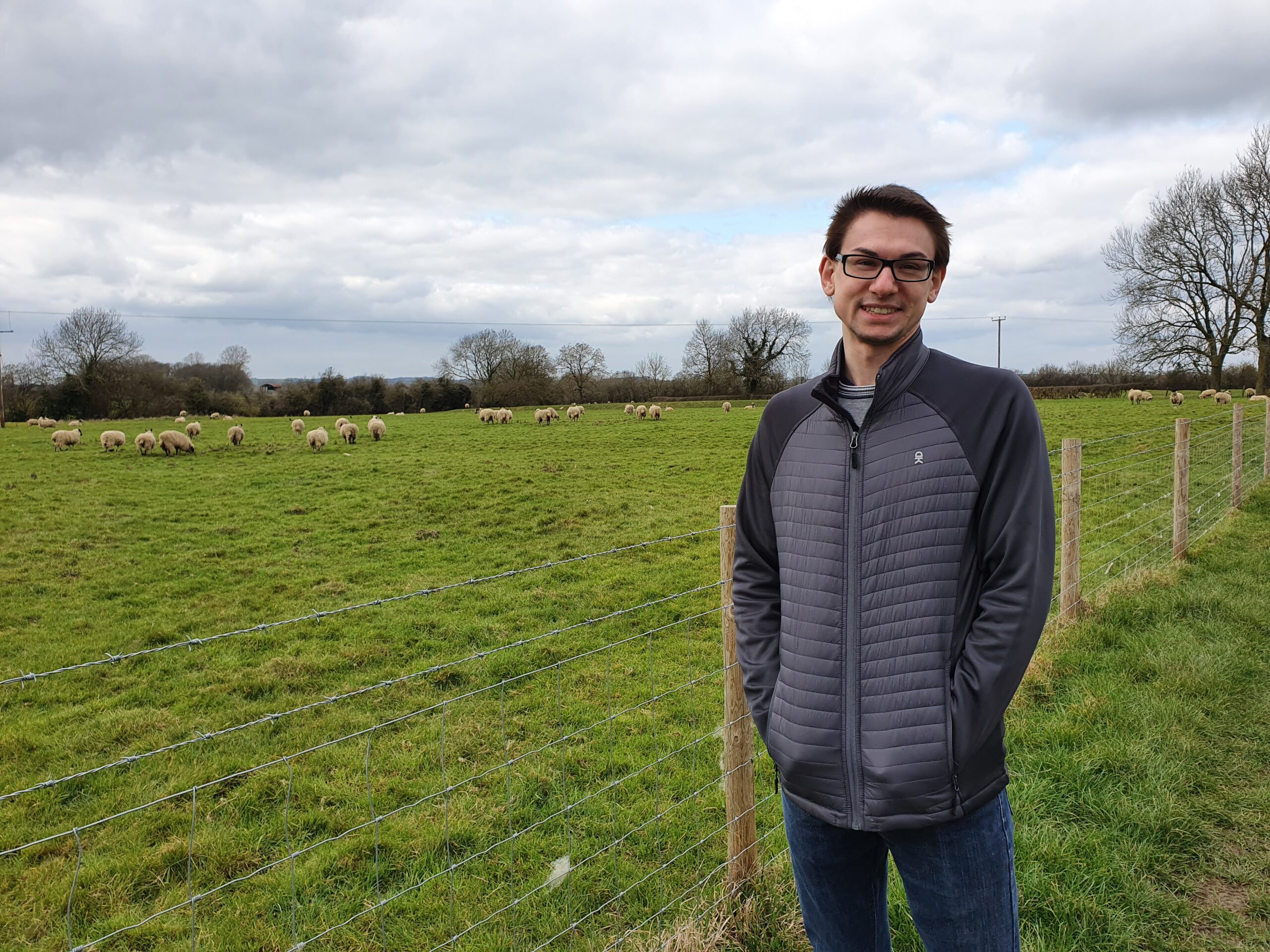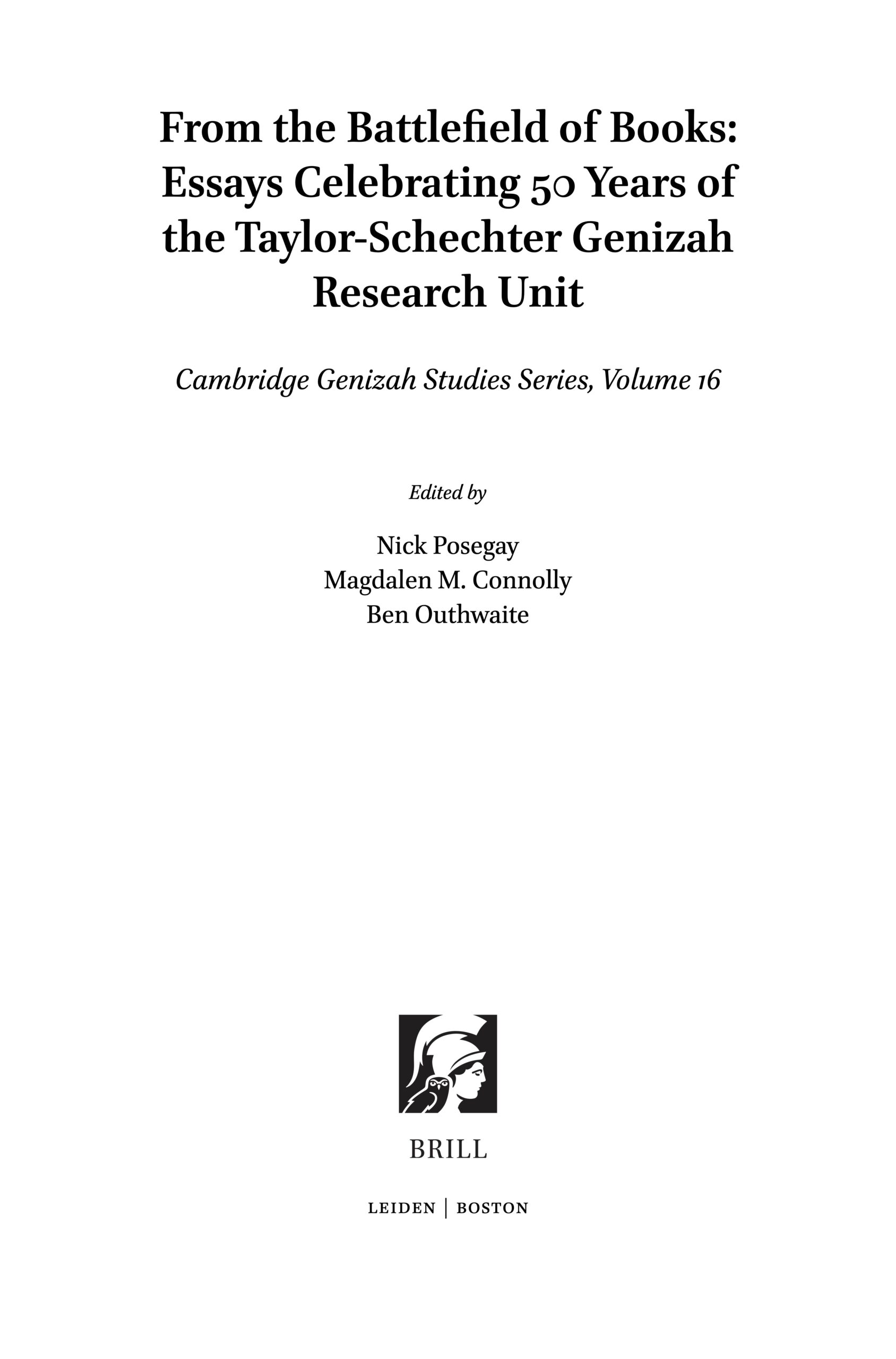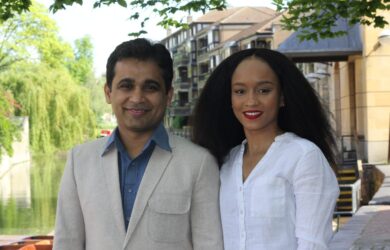
Nick Posegay is co-author of a new book on scholarship derived from the Cairo Genizah
Together, the articles in the book demonstrate the achievements of GRU alumni in advancing the field of Genizah Studies for more than five decades.
Nick Posegay
A Gates Cambridge Scholar has co-authored a new book which brings together the research and memories of three generations of Cairo Genizah scholars and celebrates 50 years of progress in the field since the founding of the Cambridge Genizah Research Unit in 1974.
Genizah means a hidden storage room and almost one thousand years ago, the Jews of Old Cairo began to place their worn-out books and scrolls into a hidden room in their synagogue. Over the years, they added all sorts of writings to the pile, sacred and secular texts alike.
When the chamber was emptied at the end of the 19th century, it held hundreds of thousands of paper and parchment fragments. Now known as the ‘Cairo Genizah’, it has become one of the most important sources of knowledge for the history of the Middle East and the Mediterranean world.
From the Battlefield of Books is a collection of essays from three generations of scholars and covers their research and memories from their time at the Taylor-Schechter Genizah Research Unit at Cambridge University Library. Gates Cambridge Scholar Nick Posegay is one of the authors.
 The book includes 18 articles on medieval Jewish History, Hebrew and Arabic manuscripts, archival history and the story of the Cairo Genizah collections at the University of Cambridge.
The book includes 18 articles on medieval Jewish History, Hebrew and Arabic manuscripts, archival history and the story of the Cairo Genizah collections at the University of Cambridge.
Many of the articles cover major new discoveries. GRU Associate Amir Ashur and Alan Elbaum from the Princeton Geniza Lab write about new documents from the lifetime of Moses Maimonides, one of the most prolific and influential Torah scholars of the Middle Ages. Kim Phillips from the GRU and the University of Cambridge’s Faculty of Divinity discusses new Bible manuscripts copied by the scribe who wrote the Leningrad Codex, the oldest known complete manuscript of the Hebrew Bible in Hebrew.
Former GRU associate Avihai Shivtiel writes about potential instructions for uncovering buried treasure in Egypt’s Fayyum region. Geoffrey Khan, Regius Professor of Hebrew at the University of Cambridge, writes about the publication of two previously unseen Arabic documents in the Russian National Library using photographs that he took over 30 years ago and former GRU associate Mohamed Ahmed discusses the discovery of an Arabic copy of Kalila wa-Dimna – a book of fables based on the c. 200 BC Sanskrit text Panchatantra – written in Hebrew characters.
Catherine Ansorge, former curator of Near Eastern collections at Cambridge University Library, talks about the publication of a previously unknown travelogue by Margaret Gibson, a Scottish Semitic scholar and traveller who lived in a big house on Castle Hill in Cambridge with her twin sister. It describes her travels in Egypt and Palestine in the 1890s. Meanwhile, Nick Posegay writes a biographical article about a queer archivist who worked on Genizah manuscripts at Cambridge University Library in the 1890s-1900s. Meanwhile, Stefan Reif, founder of the GRU, writes an article sharing memories of his experiences with Shelomo Dov Goitein, often regarded as the father of modern Genizah research, in the 1970s.
Nick Posegay [2017], who did his PhD in Asian and Middle Eastern Studies and is currently a Leverhulme Early Career Fellow at the Cambridge Faculty of Asian and Middle Eastern Studies, says: “Together, the articles in the book demonstrate the achievements of GRU alumni in advancing the field of Genizah Studies for more than five decades.”
*The full book is open access and available here.












